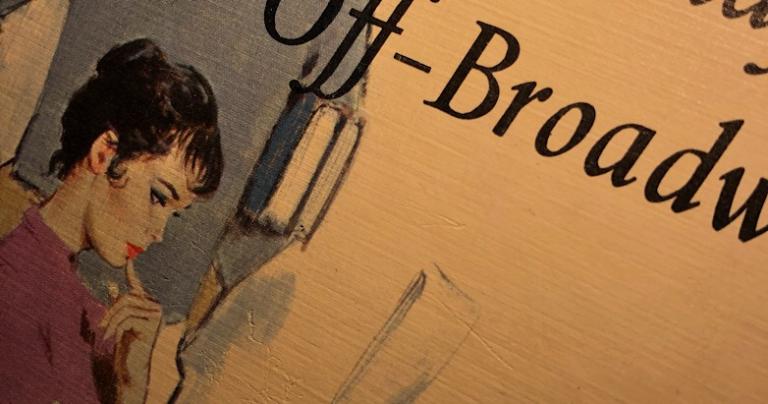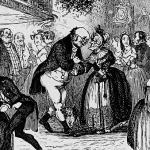 Culture changes can make mild social injustices obvious, or unpopular, or create new ones.
Culture changes can make mild social injustices obvious, or unpopular, or create new ones.
Changes in our economy from 1900 to 1960’s took economic power from homes (farms, family business) to workplaces disconnected to family. The results have still not been incorporated in ways that sustain both the economy, families, and individual choice. . . Oddly, I was reminded of this by a fluffy piece of Young Adult Fiction from 1962. This is a “thrilling series for girls,” but as a boy born in 1963 who always preferred Nancy Drew to the Hardy Boys, I had no problem when my dear daughter bought me the book for my holiday reading.
This is pretty well written for the genre (faint praise!) and is utterly unrealistic in featuring 1962 theater as sexually wholesome and tea-total (faint damns!). The book is a reminder that there was a brief time before liberalism in the US was captured by social liberalism. The elite had conventional Christian morals, but were internationalist in favor of strong government programs. Education was the greatest good . . . and the youngsters in 1962 theater (as pictured in this book) had well worn copies of Shakespeare. The liberal elites had no hesitation in making cultural judgments.
The early 1960’s were JFK, Dick Van Dyke, religious revivals, and a world still in love with science and optimistic. Somehow, someway, we were getting better every day, in a manner culturally and ethically recognizable to the World War II generation, but in an America richer, more confident, and happier. The Greatest Generation had the Great Depression, their children could anticipate a great jollification. It was good to be an American in 1961 or so our leaders thought. If things did not always turn out as they believed they would, moon landings, yes, Vietnam victory, no, they still thought we would boldly go where no man had gone before.
There were worse errors.
Peggy Plays Off-Broadway keeps Peggy firmly on course for an acting career and even has some useful acting tips (don’t imitate Marlon Brando), but the greatest value is in showing that a positive economic change was bound to undercut the old social order. Peggy has choices and nobody (at least in the book) disputes those choices: marriage, college, or a career. In her case, Peggy chooses a career, acting, and goes off to New York to give it a try. There she encounters a paternalistic system that has not a single casting couch. The men who run off-Broadway theater all are attracted to women (!), but are gentlemen. Her director and producer would now, if living, be in old age and unafraid of any revelations.
God bless them.
Yet Peggy is limited by being “a girl” (the men are called boys, but have fewer limits). She has particular roles to play and not just on stage. The boys run the show and write the play, do some acting, and girls do the sewing and some acting.
This is unjust and intolerable. The division of labor in a family farm or business often was based on general and genuine biological and mental preferences between the broad categories male and female. I can assure you, however, that if Granny was more capable of tarring the roof than Papaw, then Granny was tarring the roof on a West Virginia farm. Sexual roles were there, but pragmatic.
It was easy for “Reynolds and Sons” actually to be run by Mother and the daughters.
Family structure and family business structure might have tensions, but those could be resolved. When family structure was applied to corporations or off-Broadway, the entire system became arbitrary and loathsome. Nobody in the theater is a father or mother and so these roles are utterly inappropriate.
Those of us who still applaud the general sexual morality of Peggy Plays Off-Broadway cannot approve of exporting family structures to organizations disconnected to the family. One response of conservatives was to condemn anyone (Peggy or Pete) leaving the farm and going New York, but that was unjust.
Why is it bad to be an actor?
Go! Flourish!
The same problems (of course) existed with every profession divorced from the family. The minute medicine needed to be bigger than Doc Baker and her farmer husband, then family structure came into deep tension with work. Work had money and glam, so work won.
The PhD was (despite foolish predictions) a better title than the Mrs.
The authors of Peggy seem to assume off-Broadway can be run with the social structure of the family farm, but that the boys would continue in the interesting roles while (eventually) Peggy would drop out and raise the children the culture needs.
No.
And how unjust is that to Peggy?
Very.
It was also unjust to Mal and all the other boys she worked with off-Broadway, but that is a different story. Feminism of the Dorothy Sayers sort saw this. Read her Are Women Human? to see what Peggy needed. We cannot take many of the interesting things out of the home (education and commerce) and still expect women to stay.
Feminism is essential in this changing cultural world to enforce the idea that all humans are human.












